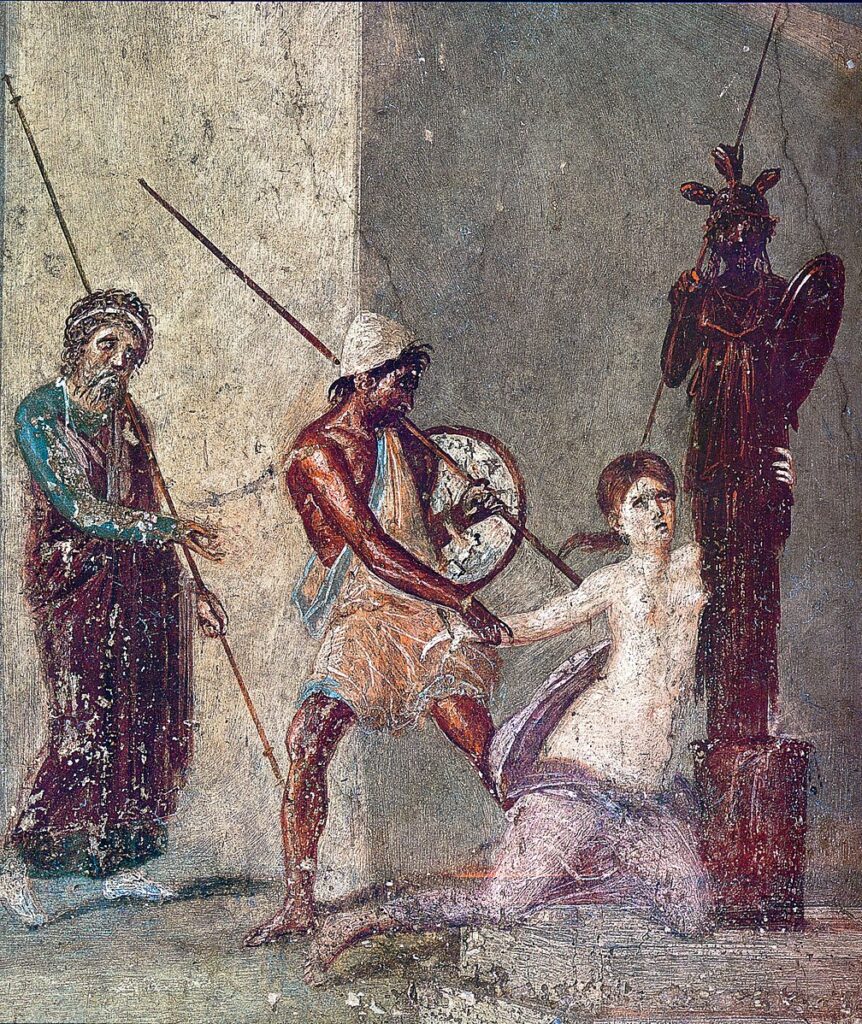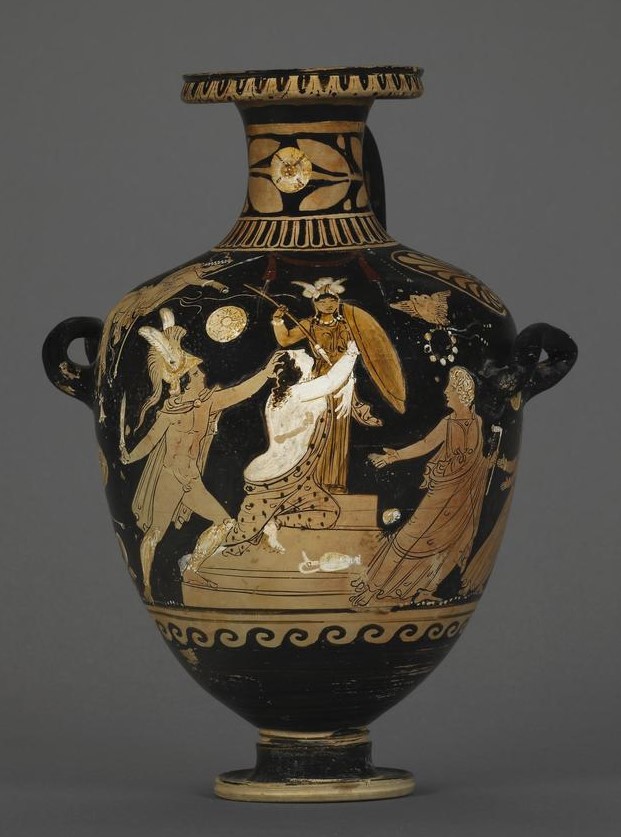We’ve all had one of those “I told you so!” moments, and mythological figures are no exception. The most fitting example of this is Cassandra, the Trojan princess, priestess of Apollo, and prophetess cursed to never be believed.
One of the things that has always interested me about Cassandra is how exactly she got her prophetic powers. With mythology, there’s rarely one definitive version of a story, and Cassandra’s story is no exception.

| One version suggests that as young children, Cassandra and her twin brother Helenus were left overnight in the temple of Apollo by their parents King Priam and Queen Hecuba. When Priam and Hecuba returned to the temple the following morning, the children were found with snakes licking their ears and mouths, which is said to have been the moment that both children gained their prophetic gifts. Snakes have been linked with prophets and prophecy throughout mythology. The god of prophecy himself, Apollo, established his oracle at Delphi after killing the giant snake-monster Python, and the prophet Tiresias endured a very…transformative journey, after encountering some snakes that were mating. |
| Another, more well known, version of how Cassandra got her powers is much less family friendly. In this version, Cassandra is serving as a priestess in the temple of Apollo. Apollo sees her and desires her, so he offers her a deal. If Cassandra sleeps with him, he will give her the gift of prophecy. Initially Cassandra agrees, and Apollo grants his gift. However she then changes her mind, and while Apollo is furious, he cannot remove his gift and instead curses her to never be believed. What follows is Cassandra predicting the fall of her city, the fates of her family members, and the deaths of both Agamemnon and herself at the hands of Clytemnestra.Whether Cassandra gained her cursed gift from the flickering tongues of snakes or from the fury of a spurned god, her name is still used when describing someone correctly predicts disaster but is not believed. |

©️ Zoe Lister
